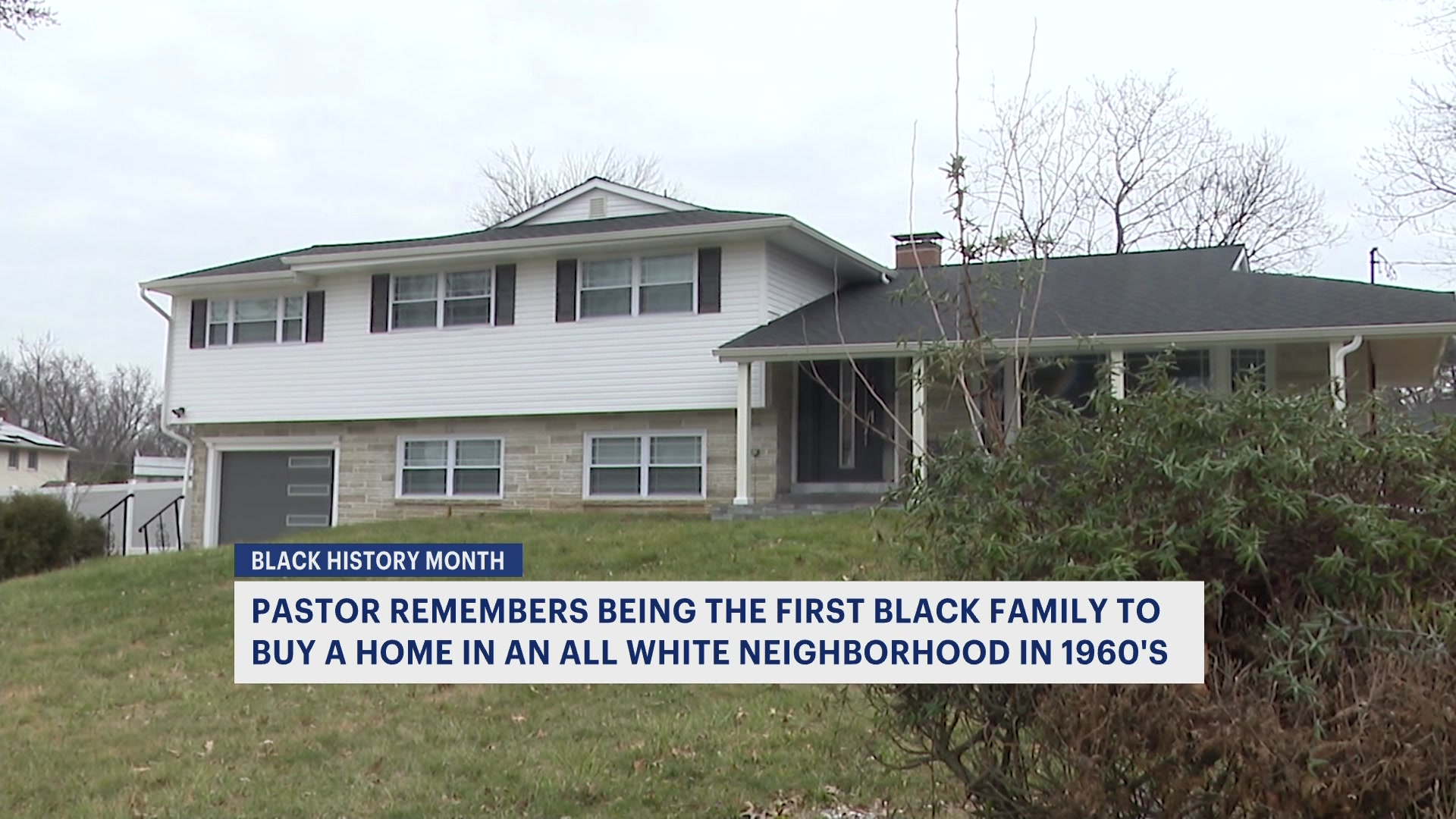More Stories
With memories of the Italian marble décor he grew up around, Amir Khan walks into the house his parents purchased in 1968 from movie star and singer Frankie Avalon.
“There was such excitement with all the family,” Khan said. “We felt like we were the Jeffersons, moving on up, but then reality set in.”
It's Khan's first visit to his childhood home since his family sold it three years ago to Rosemary Abreu's family who has since done a full renovation. While Frankie Avalon's marble is gone, the memories remain. Many happy memories, but not all of them. Khan says the windows of the house were shot through and two light posts in front of the house were shot at.
Khan's parents bought the house in 1968 when Cherry Hill was an all-white neighborhood. His father Mustapha Khan was a Trinidad-born physician who treated the poor in Camden where the family had been living.

Khan says Avalon had to knock on neighbors' doors to assuage their prejudice and fear of a Black family moving in.
“My parents were very concerned about what else could possible take place and happen,” Khan said.
Khan says, besides the windows and lanterns being shot out, there was the time kids gathered out front yelling “go back to Africa” and other racist jokes told by kids at the bus stop. Khan, who would go on to become a wrestling star at Rutgers, resisted lashing out.
“Don't get me wrong, I had some great memories here. More good ones than bad ones, thank God,” Khan said.
It's a familiar story to African American families who moved to broad swaths of New Jersey suburbs long kept all white for decades by racist deed restrictions, redlining and discrimination. A story told thousands of times over with a thousand of different endings.
In the Khan's case, the early hostilities ended in his family's lasting friendships with many of the same white neighbors who initially didn't want them there.
Khan, now a pastor, businessman and political activist, today counts some of those kids who addressed him with the N-word as close friends a half century later.
“You know, when you get a chance to know people, you get a chance to look beyond a zip code, a bank account, the complexion of their skin, the texture of someone's hair, you realize people are people,” Khan said.
Yet even today, Khan says he sees his kids and grandkids’ generation dealing with discrimination, maybe more subtle than those shots through the window, but all too real.
“Here we are, 2023, still experiencing the same stuff,” Khan said.
The change proving real, but too slow, forged as it is by millions of stories like the one of family from Camden who decided it was time to live in the home of a movie star.
More from News 12
0:16

Car fire erupts in Avenel
0:26

Georgia man charged with injuring woman in Denville shooting
1:51

Health officials warn of measles exposure at Newark Liberty International Airport
1:46

NJ residents find ways to enjoy the snow following overnight winter storm
0:28

1 killed, 3 injured in West Orange house fire
0:29
